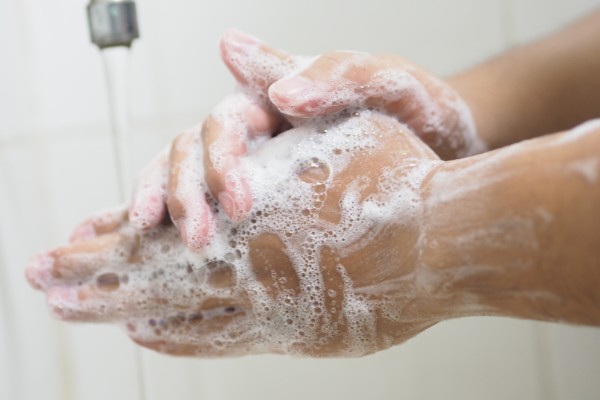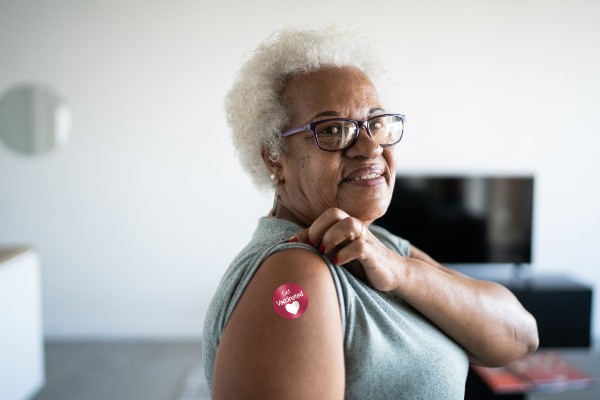Since the COVID-19 crisis, there’s been a lot of information out there about what—and how—to clean surfaces in your home. While you certainly want to remove any virus particles that can cause the disease, it’s hard to know what you really need to do to stay safe.
Rebekah Sensenig, D.O., an infectious disease specialist with Riverside Health, says, “While you don’t want to be careless and expose yourself to COVID-19, you also don’t want to be spending a lot of time cleaning things that really don’t need it and wasting hard-to-come-by disinfecting products.”
Let’s explore the facts.
The basics
Soap and water washing removes germs and dirt from surfaces, but disinfecting actually kills them. A disinfectant is a special chemical designed to kill disease particles, but in a pinch, a diluted bleach solution or one consisting of 70 percent alcohol will also do.
On surfaces, coronaviruses die on their own within a fairly short time—in days or even just hours. Heat and sunlight speed up that process. Nonporous surfaces (metal, plastic) are thought to be more likely to transmit the virus than porous ones (wood, cloth), but it appears that all surfaces are low-risk for the spread of the disease compared to person-to-person contact.
Still, you are wise to follow some basic precautions.
What you should consider cleaning and disinfecting
- Your hands. Your first task when you come home is to wash your hands with soap and water for at least 20 seconds. Do a thorough job.
- Electronics, like cellphones, laptops, tablets. Read the manufacturer’s instructions first, but 70 percent alcohol wipes are generally safe. Dry with a soft cloth.
- Clothing, particularly if you’ve been in contact with someone who is sick. Use disposable gloves to handle the laundry, wash it in the hottest water you safely can and dry it thoroughly.
- Countertops and doorknobs. Using disinfecting wipes on these surfaces will give you peace of mind and kill any stray virus particles.
What you don’t need to disinfect
- Groceries or food packaging. According to the Centers for Disease Control and Prevention information on running essential errands, there is no evidence that the virus is spread this way.
- Takeout food. The same advice goes for prepared food you bring home or have delivered.
- Cardboard cartons. If you order things online, chances are your purchases will come in cardboard boxes. They don’t really pose a threat, but some experts recommend letting them sit for 24 hours before opening them.
- Money and mail. Again, if you can set these paper items aside for a while before handling them, any stray virus particles will decay.
What to keep in mind
Disinfectants, bleach solutions and alcohol can damage clothing and surfaces. Be careful! Always wear gloves when using these products, and carefully read the directions first. Make sure you have good ventilation, and watch out for children and pets. Store these products safely away from them and make sure you don’t leave residues on surfaces. No one should ever eat or drink disinfectants as they are poisonous.
Dr. Sensenig says, “While surfaces don’t generally pose a big risk for the transmission of the virus, remaining careful and washing hands thoroughly and frequently will help keep you safe—and give you peace of mind.”
If you want to learn more about COVID-19, please visit Riverside’s Navigating COVID-19 website for more information. If you are concerned that you may have or may have been exposed to COVID-19, please read this article for more specific information on the steps you should take.
References:



